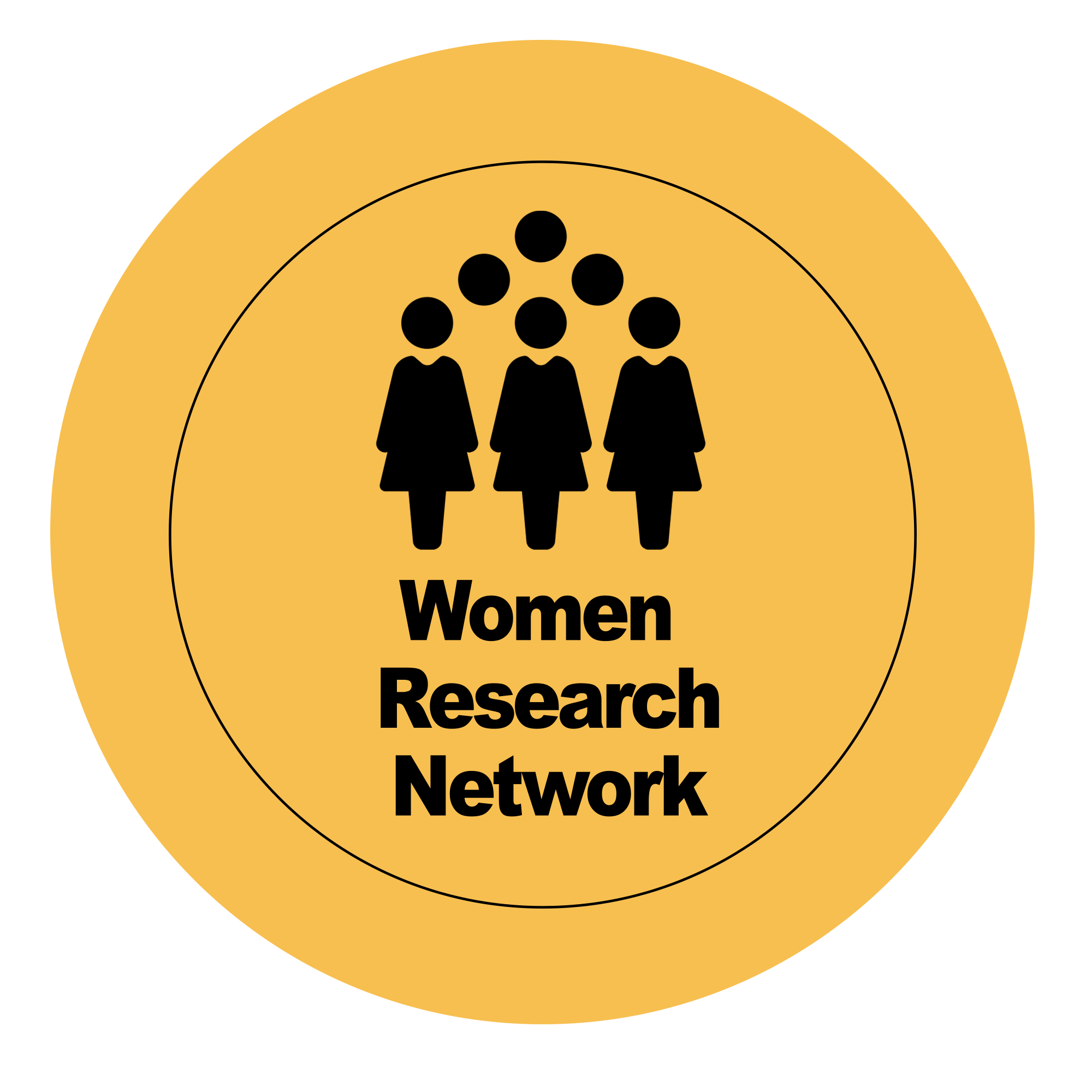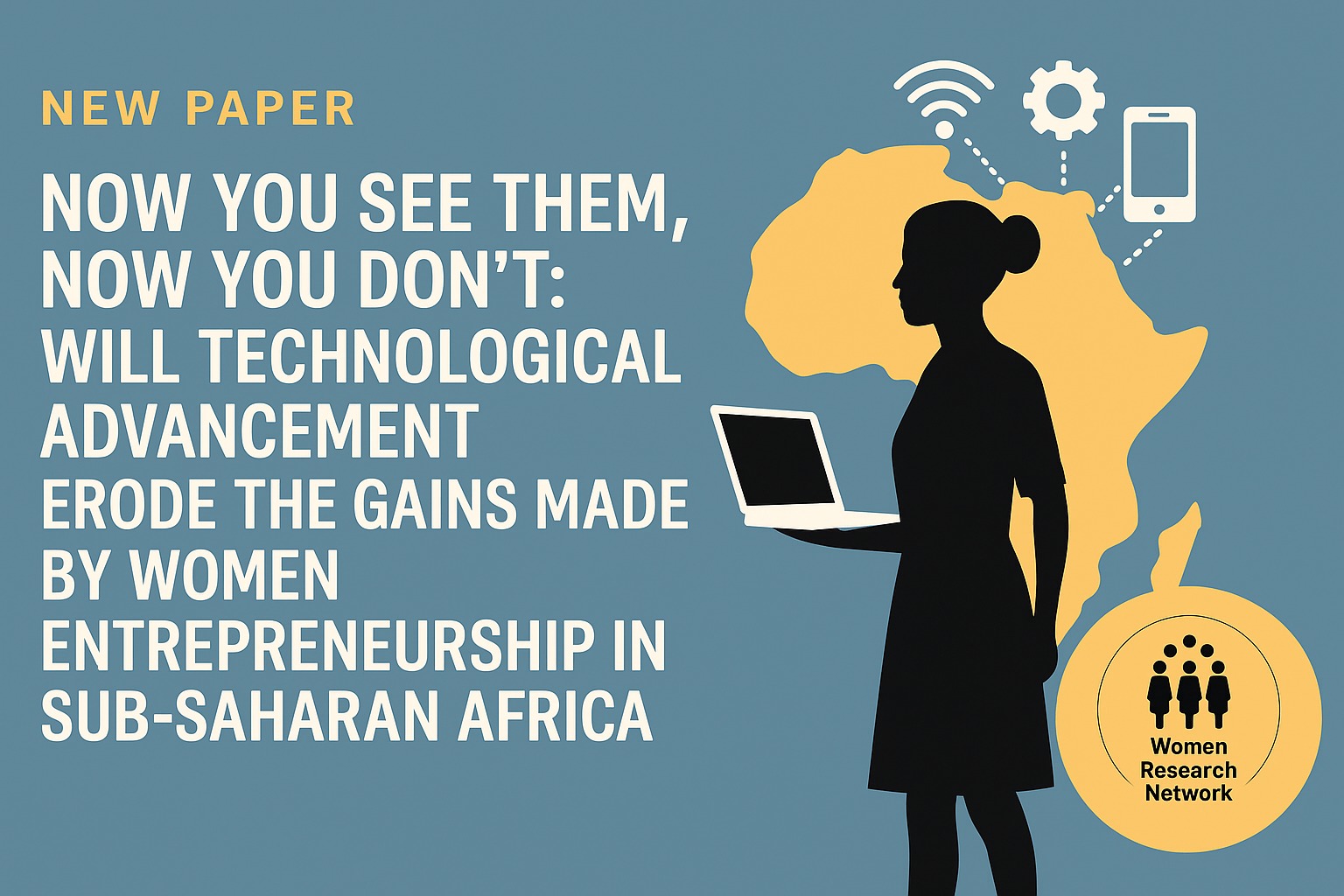By Bridget Irene, Chioma Onoshakpor, Joan Lockyer, Kemi Chukwuma-Nwuba, and Siona Ndeh
As digital technology sweeps across Africa, a new question emerges: Will it be a great equalizer, or will it deepen existing inequalities?
In our latest publication in the Journal of International Entrepreneurship, we explore how technological advancement is reshaping women’s entrepreneurship in Sub-Saharan Africa (SSA). The paper, titled “Now You See Them, Now You Don’t: Will Technological Advancement Erode the Gains Made by Women Entrepreneurship in Sub-Saharan Africa?”, investigates the complex relationship between women, entrepreneurship, and the digital economy.
The Digital Gender Divide Is Real
While many women in SSA have become entrepreneurial trailblazers, often in the face of systemic barriers, access to digital tools, platforms, and skills remains unequal. The digital gender divide means that men are more likely to benefit from mobile money, e-commerce, digital supply chains, and even basic internet access.
Women, particularly in rural or low-income settings, face compounded challenges:
– Limited access to devices and internet infrastructure
– Lower digital literacy and STEM exposure
– Socio-cultural expectations and unpaid care burdens
– Limited representation in digital policy and platform governance
What Our Research Shows
Drawing on both literature and real-world insights, our paper highlights five key findings:
1. Technology is not neutral – It reflects and can reinforce existing inequalities.
2. Women are underrepresented in digital entrepreneurship ecosystems – Not due to lack of capability, but because of structural and cultural exclusion.
3. Livelihood vs. digital innovation – Many women entrepreneurs prioritise immediate survival and income generation over long-term digital investment.
4. Platformisation is a double-edged sword – While platforms offer market access, they also introduce new forms of precarity.
5. Policy interventions are falling short – They often ignore the intersection of gender, digitalisation, and entrepreneurship.
Why This Matters
Digital transformation is not just a tech issue—it’s a gender justice issue.
If women are not meaningfully included in the design, access, and policy frameworks of digital economies, we risk erasing years of hard-won gains in economic empowerment. Our paper calls on:
– Policymakers to invest in gender-responsive digital infrastructure
– Educators and NGOs to promote STEM and digital skills for women
– Tech platforms to localise their tools and remove invisible barriers to entry
– Researchers to continue amplifying women’s voices and realities in this space
Read the Full Article
“Now You See Them, Now You Don’t: Will Technological Advancement Erode the Gains Made by Women Entrepreneurship in Sub-Saharan Africa?”
Journal of International Entrepreneurship (2025)
https://doi.org/10.1007/s10843-025-00392-x
About the Authors
This study is a collaborative effort by members of the Women Research Network (WRN) and partners across Africa and the UK, committed to advancing research that centres women’s lived realities, policy relevance, and epistemic justice.

